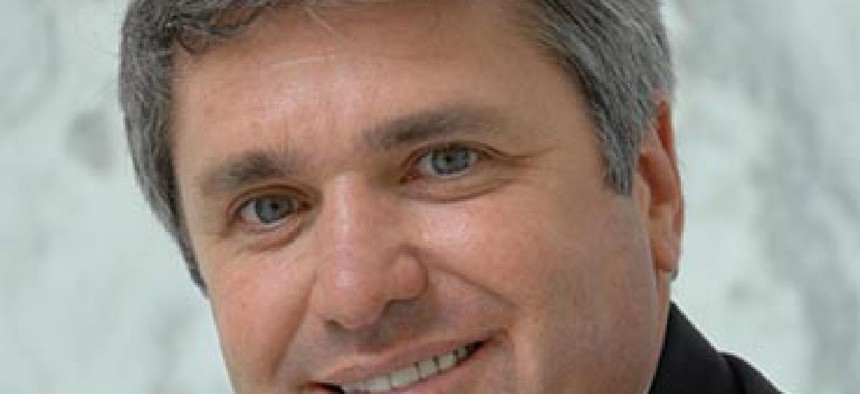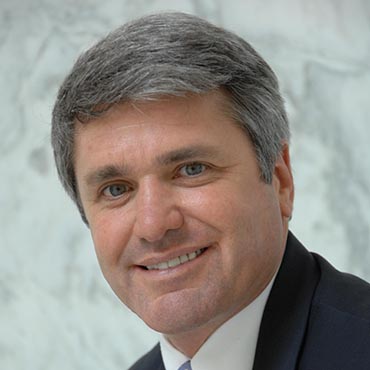McCaul floats encryption commission to Silicon Valley

Rep. Michael McCaul (R-Texas), chairman of the House Homeland Security Committee, took a humble tack at RSA, saying that, "most members [of Congress] don’t understand what encryption is."

The chairman of the House Homeland Security Committee wants Silicon Valley to back his proposed commission on digital security.
Rep. Michael McCaul (R-Texas) appealed for help from Silicon Valley to address the challenge end-to-end encryption poses to law enforcement, in part by acknowledging the shortcomings of Congress.
"Most members [of Congress] don't understand what encryption is," McCaul told the RSA conference in San Francisco on March 3.
McCaul, who chairs the House Homeland Security Committee, and Sen. Mark Warner (D-Va.) introduced a bill this week that would create a 16-member digital security commission comprised of experts in cryptography, law enforcement and privacy. The bill has earned a key backer in Sen. Ron Johnson (R-Wis.), chairman of the Senate Homeland Security and Governmental Affairs Committee.
The commission "would not be a group of politicians debating each another," McCaul said, asking for help from technologists in the room. "The individuals most capable of finding the creative ways to protect our security are the stakeholders themselves."
McCaul told reporters afterward he was confident the tech sector would back his commission idea. The Texan plans to meet with representatives from Apple, Google, and Facebook on his trip, he said.
"I tried to sit down with [tech companies] a year ago, and federal law enforcement and…there was no willingness to sit down and work out these issues together, which is what the commission is designed to do," McCaul added.
In his speech, McCaul said mandating backdoors in encryption would be a bad idea. "But I also urge you not to ignore the magnitude of this problem," he said, warning that criminals are "exploiting the genius of Silicon Valley to do harm to our communities."
A federal court order to compel Apple to help the FBI unlock the iPhone of one of the San Bernardino, Calif., shooters has hung over the RSA conference, billed as the world's largest IT security forum. Federal officials such as Attorney General Loretta Lynch have struck a conciliatory tone on the tech sector's own turf, while not wavering from their belief that Apple should comply with the court order.
McCaul argued that his commission could move faster on the encryption issue than litigating it in court.
McCaul's overture received a mixed reception. An audience member asked, to applause, why policymakers wouldn't consider regulating guns rather than encrypted communications in the wake of the Paris terrorist attacks in November.
McCaul also argued that advances in quantum computing are a national security imperative. "Whatever nation develops quantum computing, [it] will be analogous to the atomic bomb" in terms of strategic advantage, he said.
In some unhelpful optics for McCaul's Silicon Valley outreach, Rep. David Jolly (R-Fla.) on March 3 introduced a bill that would bar federal agencies from buying Apple products until the tech giant helps the FBI unlock the iPhone in the San Bernardino case.
NEXT STORY: Most CISOs Lack Direct Line to the Boss


